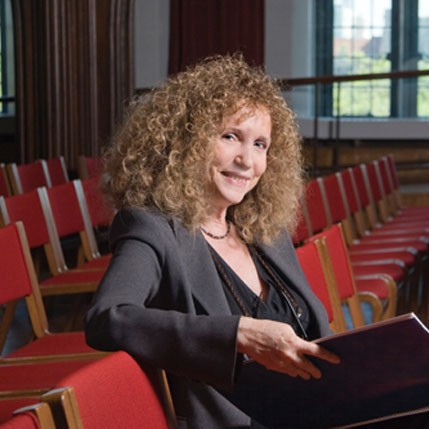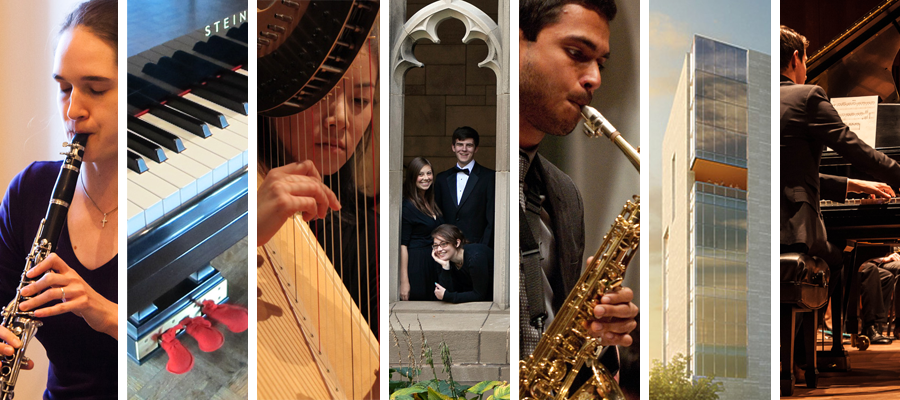 As part of our ongoing series of department interviews, Pulitzer Prize-winning composer and Andrew MacLeish Distinguished Service Professor of Music Shulamit Ran talks about her work and the upcoming Logan Center performance.
As part of our ongoing series of department interviews, Pulitzer Prize-winning composer and Andrew MacLeish Distinguished Service Professor of Music Shulamit Ran talks about her work and the upcoming Logan Center performance.
You composed a new work specifically for the Opening Weekend of the Reva and David Logan Center for the Arts. “Logan Promenades,” will be performed in the new Concert Hall. How did the venue, or possibly even the acoustics of the new hall, influence you in your composition? Is there any special significance in your use of two trumpets in this work? Please share a little bit of the background of this piece.
Not having heard, as of yet, any music at the new Concert hall I cannot say that it is the hall’s acoustics that has inspired it. But I will certainly admit that being at the Logan for the first time during the “soft opening” this past spring provided a real push. Such a beautiful space! I came home and started to hear music. Initially when Bill Michel, the Center’s director and its extraordinary driving spirit, spoke to me about possibly writing a piece for the upcoming occasion, I proposed that a previous piece I has created for the University, “Ad Sciendam…” composed for the 500th convocation in October 2009, be repeated. It already has been brought back, much to my delight, on a few occasions, by the University chorus conducted by James Kallembach. A composer loves nothing more than repeat performances, and I was ready and happy to have this piece, composed expressly for the University, represent me once again at this event. But that wonderful afternoon at the Logan last spring sparked some new thinking, and so we have “Logan Promenades”. As for the choice of two trumpets, to tell the truth, I did not realize that the piece, on this occasion, would be played in the new Performance Hall. And so I was imagining music that, I thought, could penetrate through the Logan space wherever the musicians would be situated, and wherever you would be standing or sitting, as a listener. Two trumpets, with the sound bouncing back and forth, seemed to have that kind of carrying power, and that ceremonial quality I was imagining. There is something wonderfully refreshing about composing for an occasion that is not “a concert”, or a “new music event”, but rather a very festive occasion that brings people together for many varied reasons all of which have to do with the celebratory nature of the situation. Writing a piece for such an occasion is its own unique challenge, and certainly a great joy and an honor. And so one thinks not only in the pure terms of music, but also the occasion, the space, and the audience congregating in anticipation of the event. Continue reading
